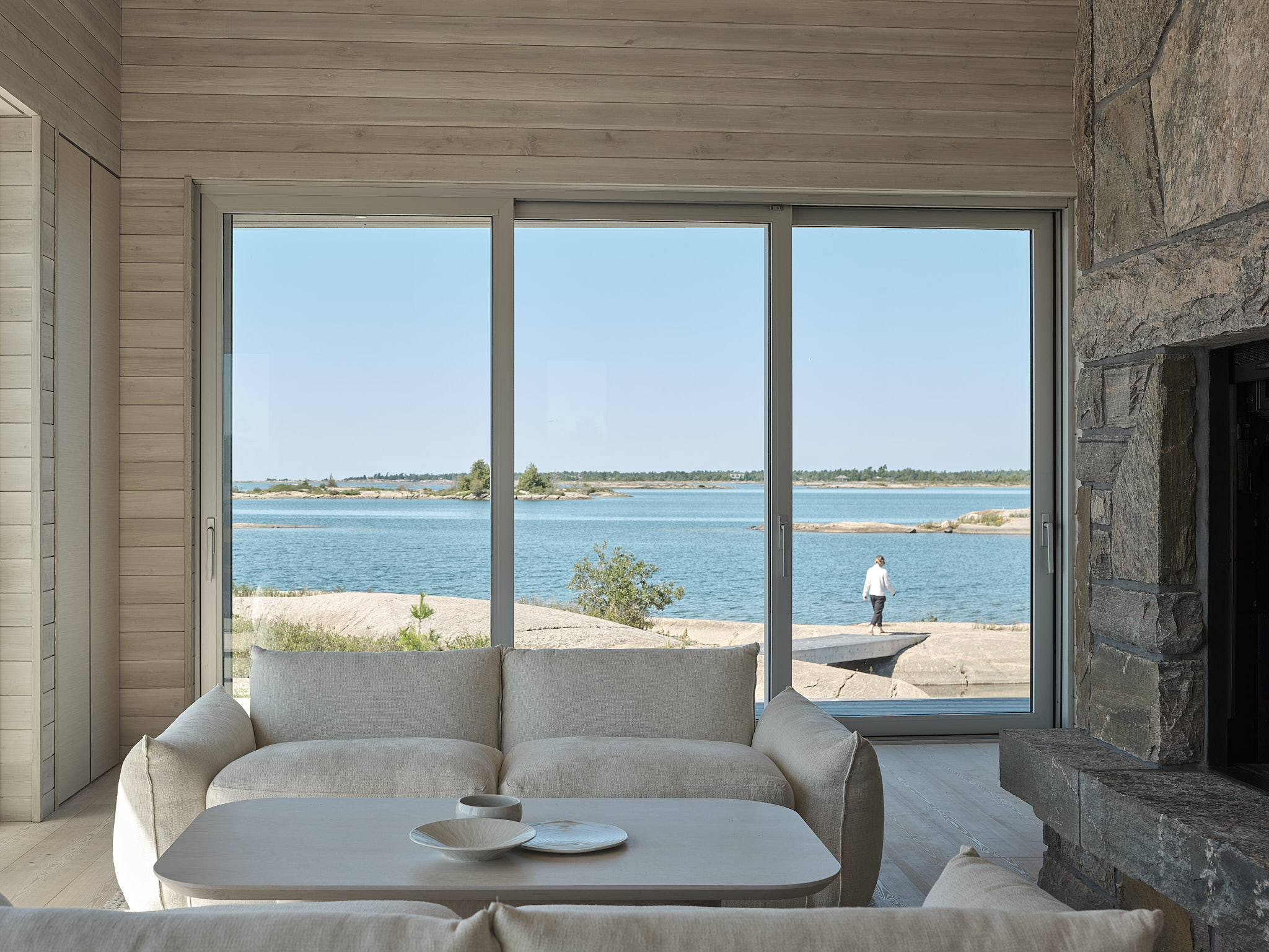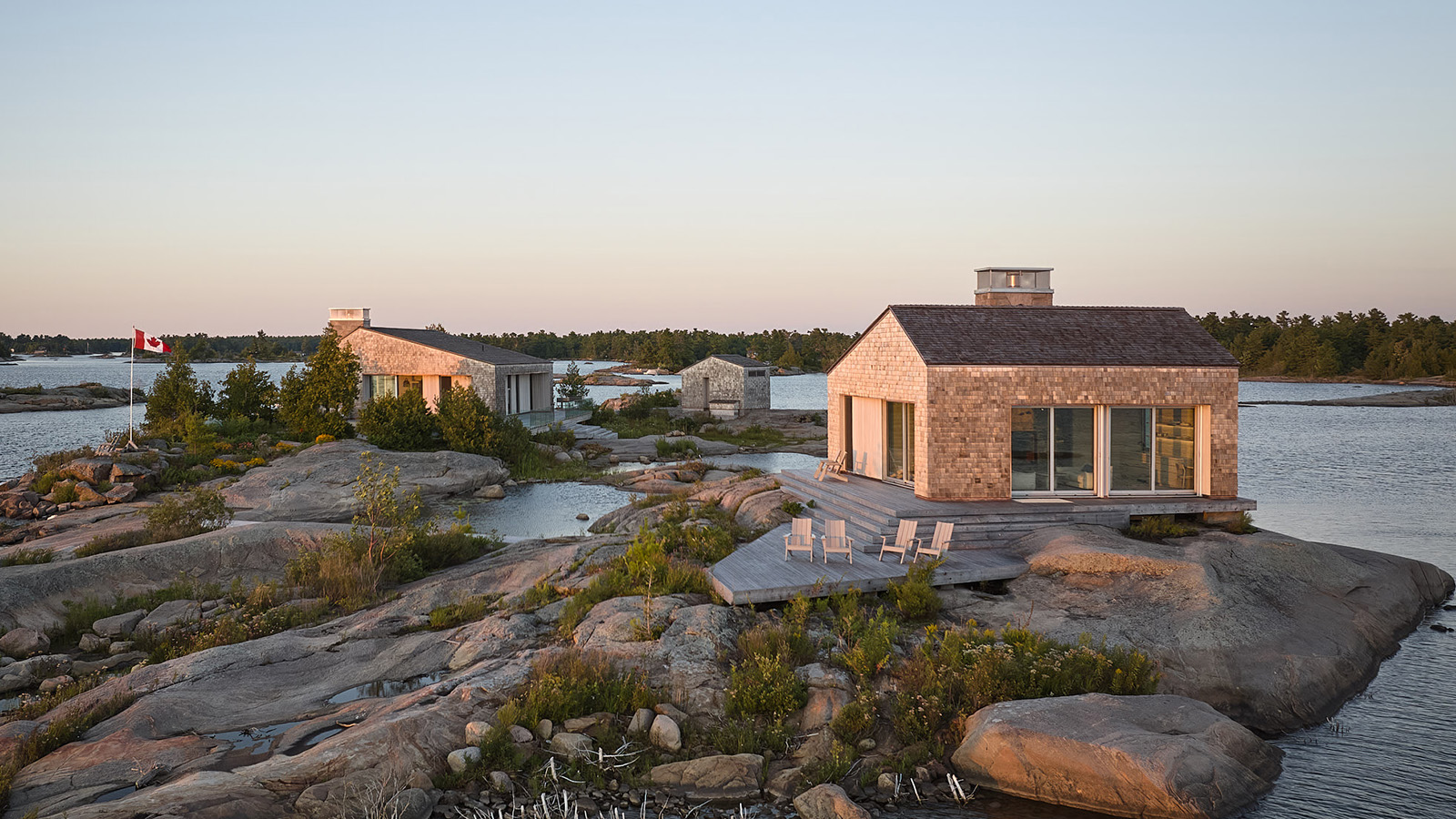
Whistling Wind Island, located off the east coast of Georgian Bay in Pointe au Baril, Ontario, is so named because the wind here does indeed whistle. This is confirmed by Kelly Buffey, the co-founder of Toronto-based architecture studio AKB, which has recently completed a new-build house on the island, a summer escape for a family of three.
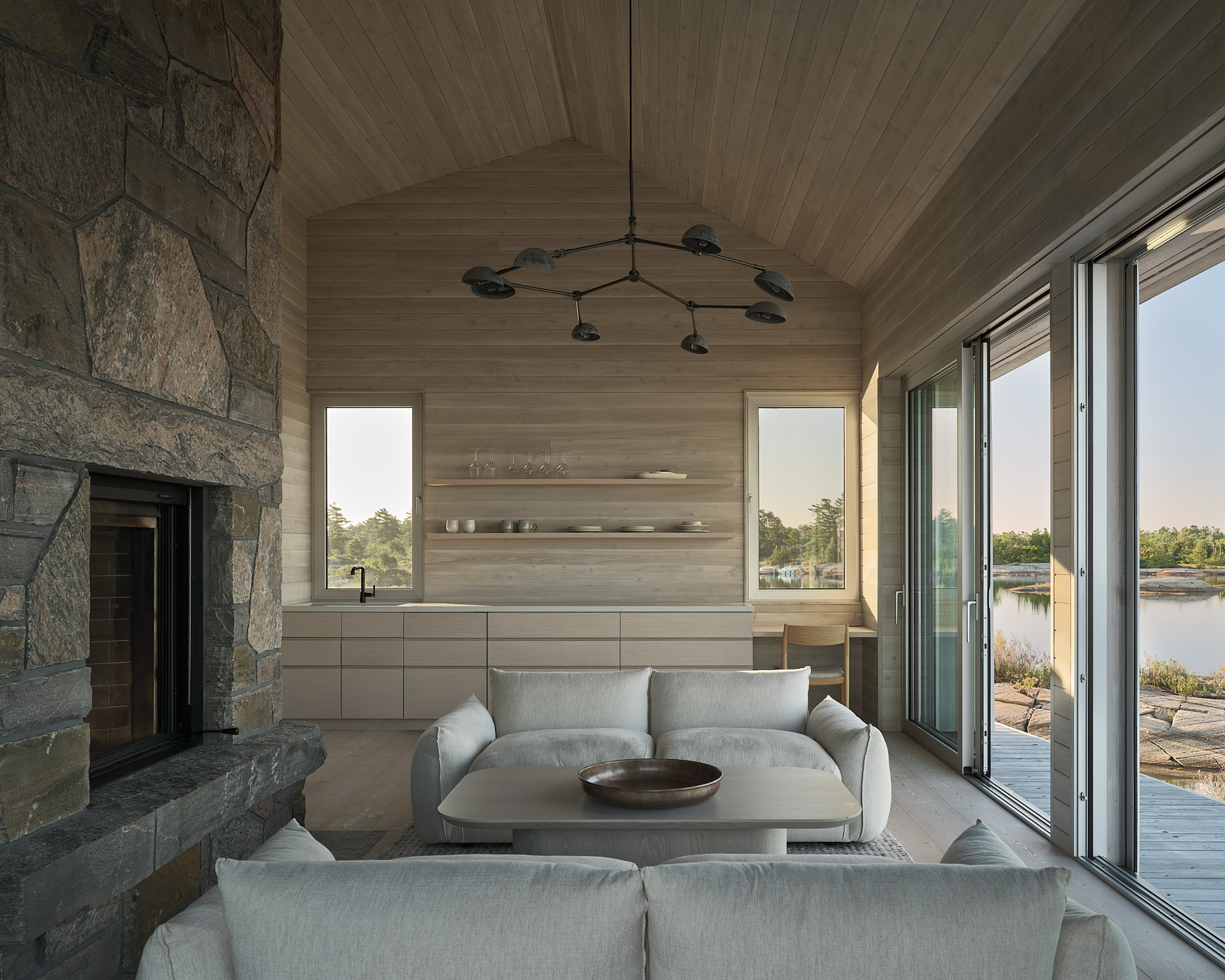
Tour the Whistling Wind retreat
When the family approached the practice about building their private retreat, they were downsizing from a much larger property in the area. One member is a kite surfer and a desire to be as close as possible to the water, alongside an overall wish for simplicity and a connection to nature, led them to purchase this islet on Lake Huron. On it, two existing structures hinted at the boundaries for what could be built in this sparsely inhabited, windswept part of the world.
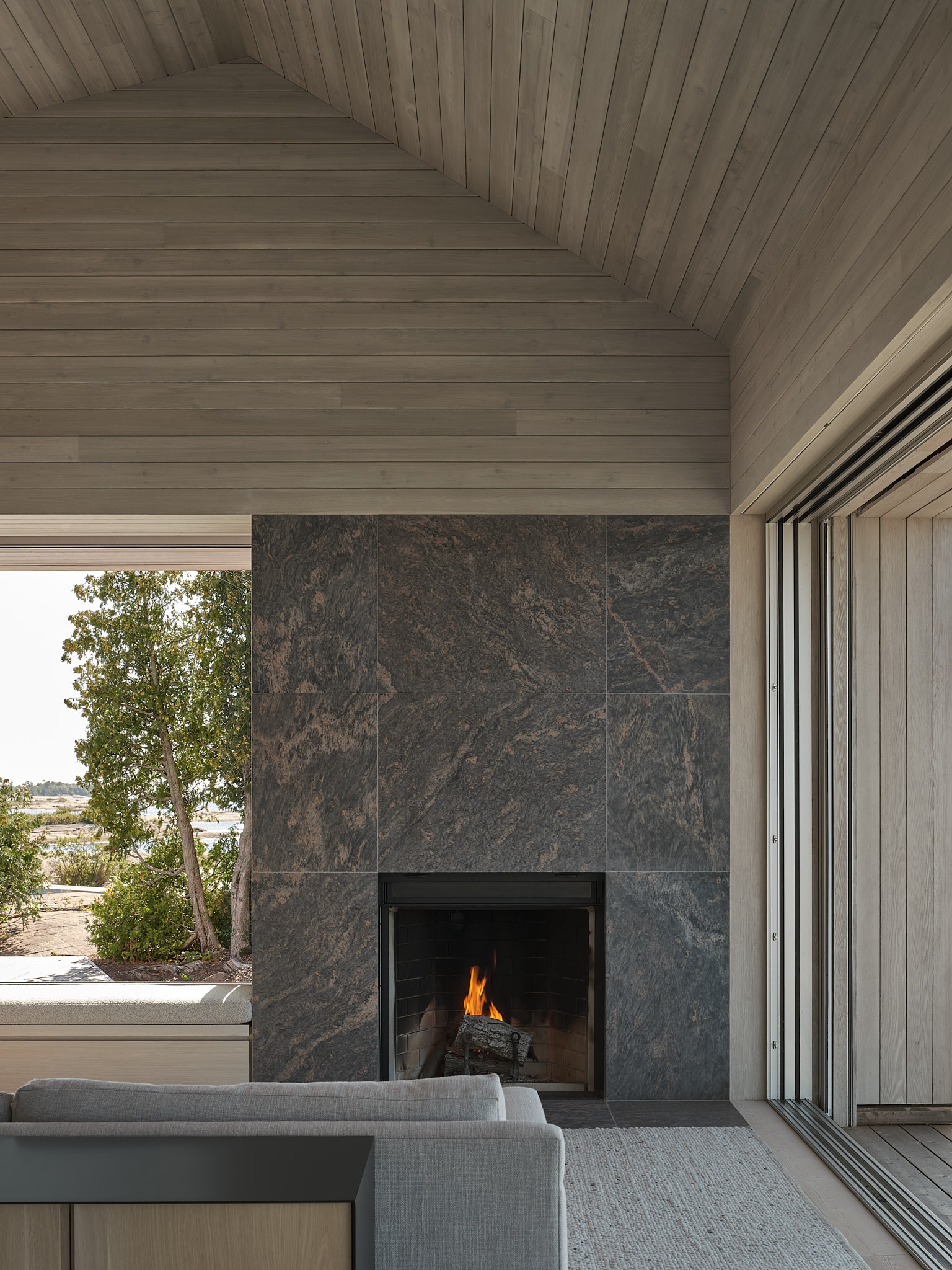
While the area is a popular holiday spot, the architecture around Pointe au Baril is,on the whole, understated and modest, conceived so as not to detract from the natural landscape and to remain respectful of the existing vistas. Whistling Wind was also designed with this in mind, resulting in a quartet of small buildings that followthe style and footprints of the original structures on the site, as well as the local planning regulations for high water mark points, setbacks, volume and height.
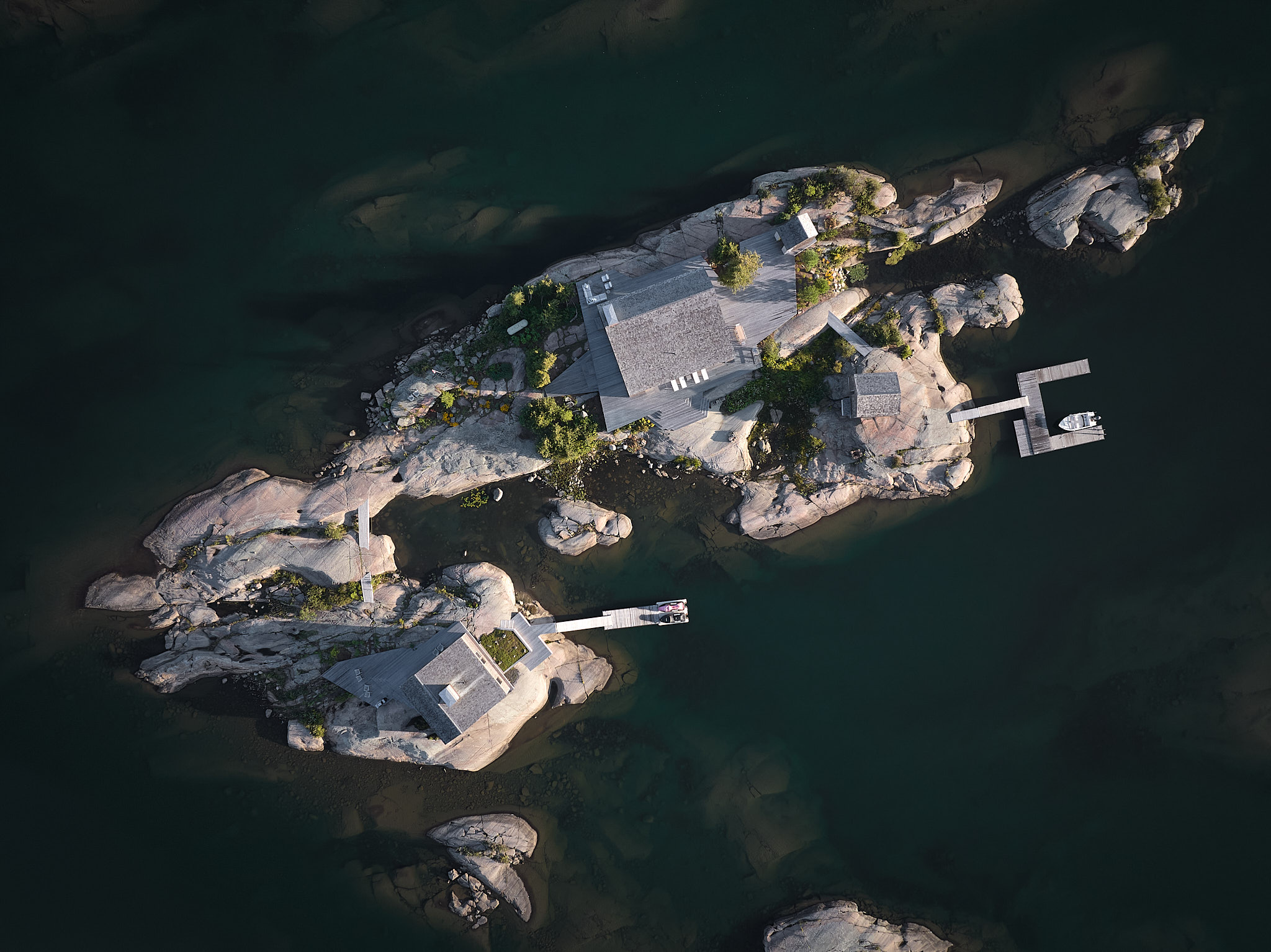
All the docks had to be floating to accommodate the water rises on the lake. ‘It’s about living harmoniously with nature and respecting the mercurial weather patterns, which can change quickly from morning to afternoon, and throughout the seasons,’ says Buffey.
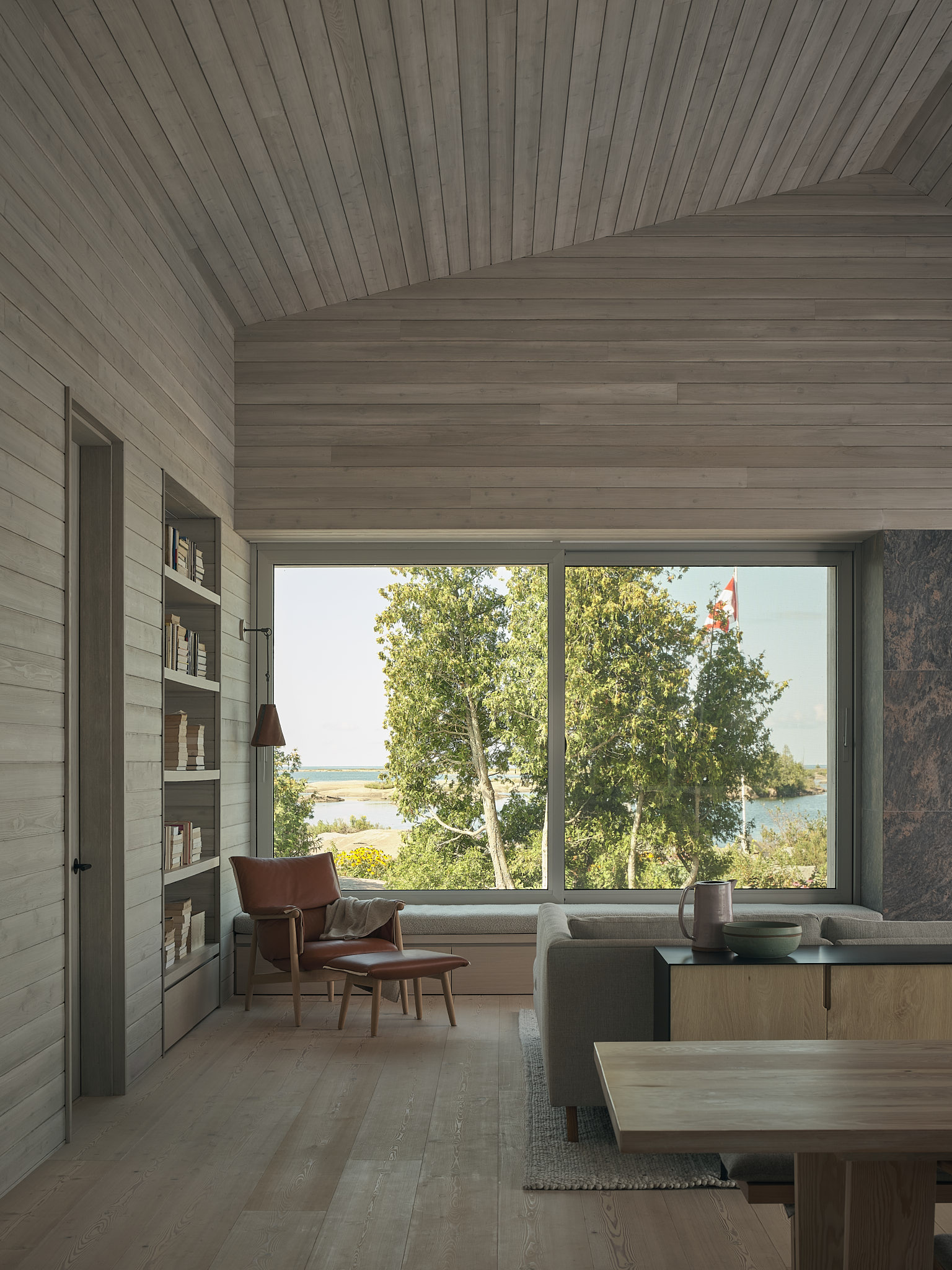
The largest of the island’s two docks flags the property’s primary arrival point. A small volume next to it serves as boat storage and home gym. From there, a gangway takes visitors to another rock outcropping with a large wooden deck that is cut out around an existing tree – one of the very few on the island, which is mostly made of Precambrian bedrock. The main house’s terrace is placed between this and a building housing a sauna. Meanwhile, a bridge leads to a guest house, or ‘bunkie’, as Buffey refers to it.
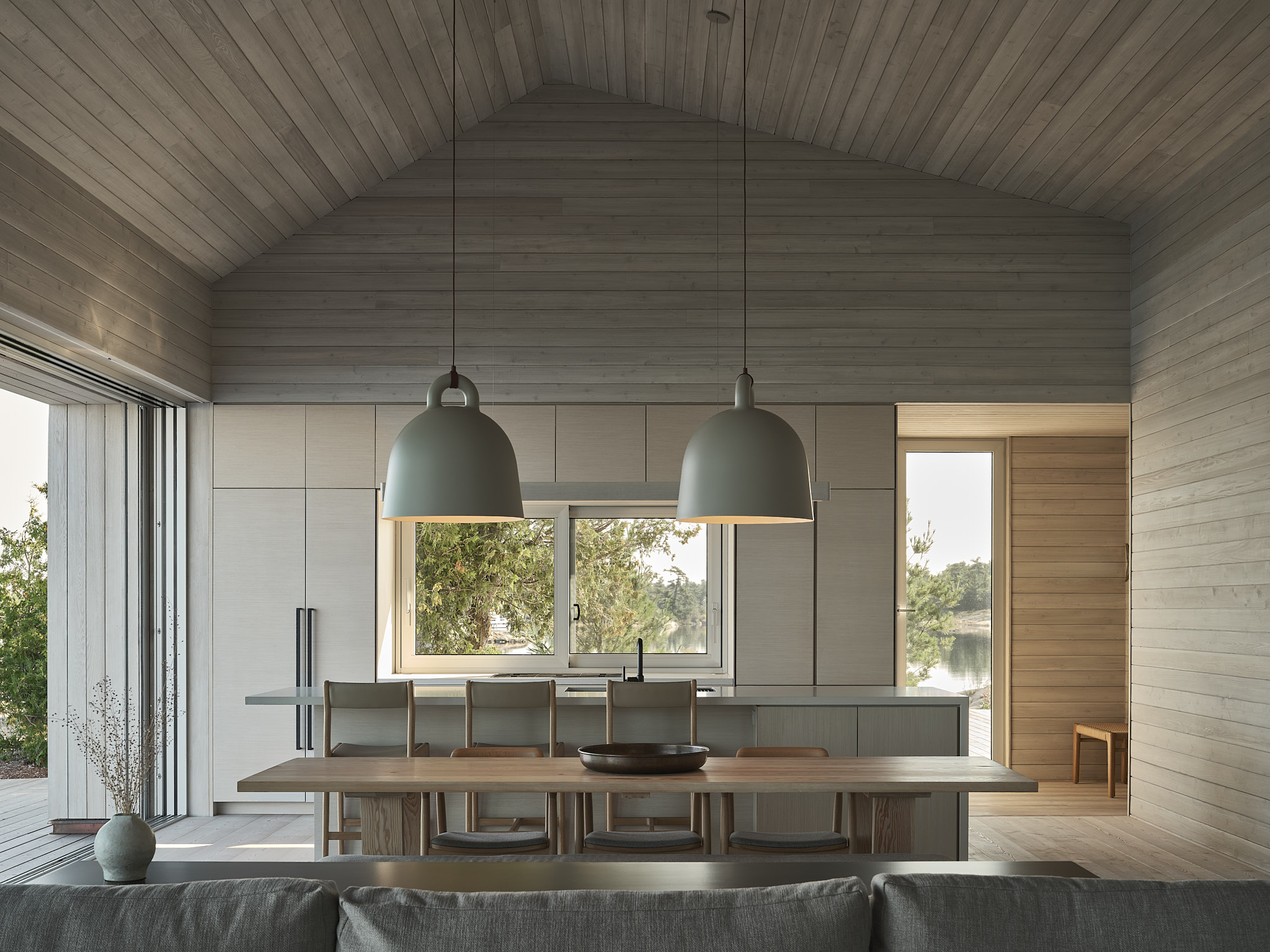
It all feels suitably humble, built low in cedar wood – clad in shingles externally and planks internally. Minimalism in lines, material palette and spirit prevail, and the architects’ attention to detail meant employing specialist craftsmanship from further afield. ‘Our approach was to create a contemporary reinterpretation of the site’s original cabins,’ says Buffey. ‘We referenced their traditional elements, but reimagined them. The gabled roofs are asymmetrical, appearing windswept in various directions, the cedar shingles cover both the roof and walls, the windows are carved inwards and become expansive voids capturing long views, and the fireplaces are grounding.’
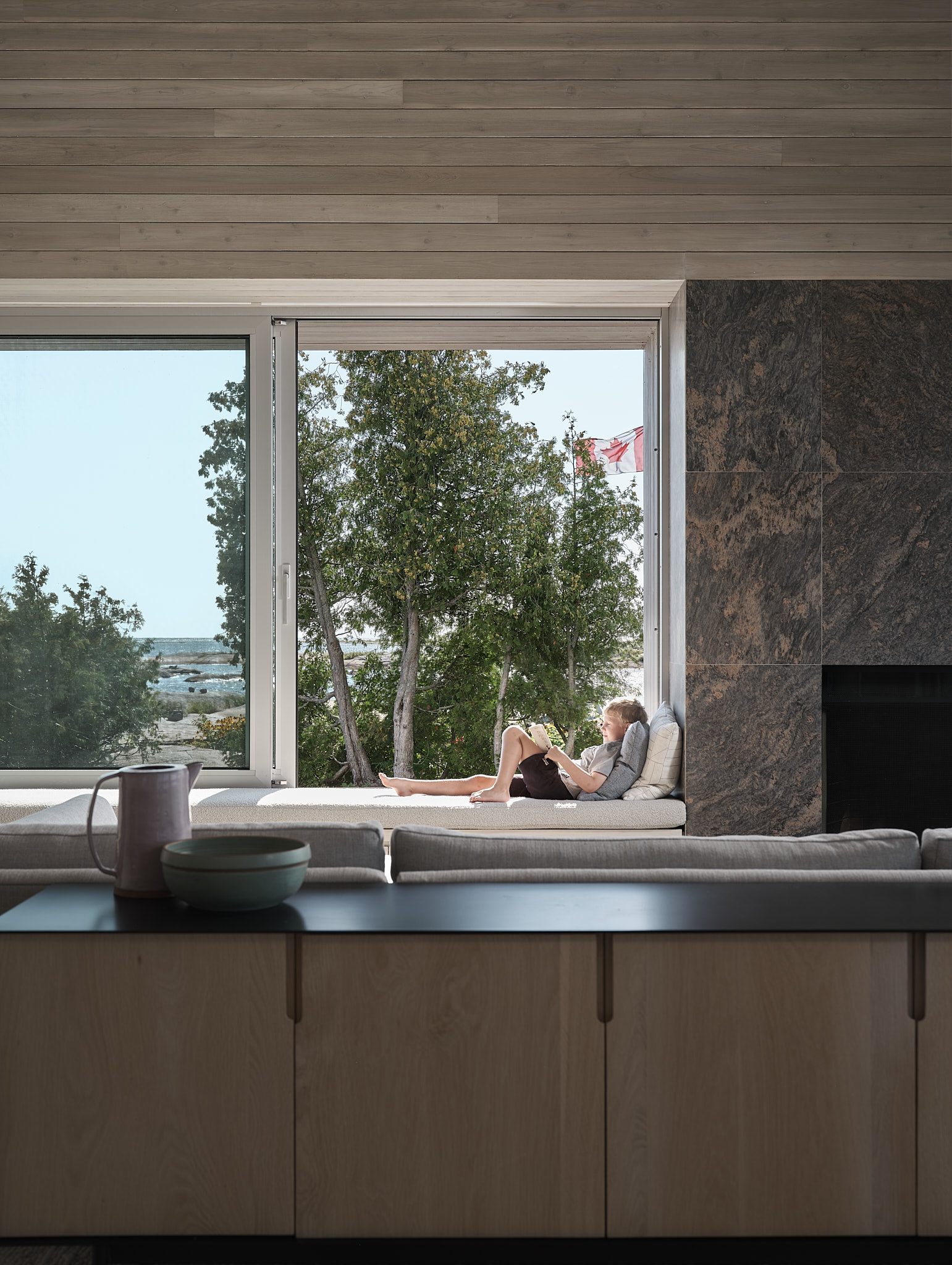
The cottage contains two bedrooms, a bathroom, and a large lounge, kitchen and dining area, punctuated by a granite fireplace, while the guest volume has a similar set-up but is slightly smaller. The clients worked with Toronto interior designer Anne Hepfer on their furniture selection and overall decor.
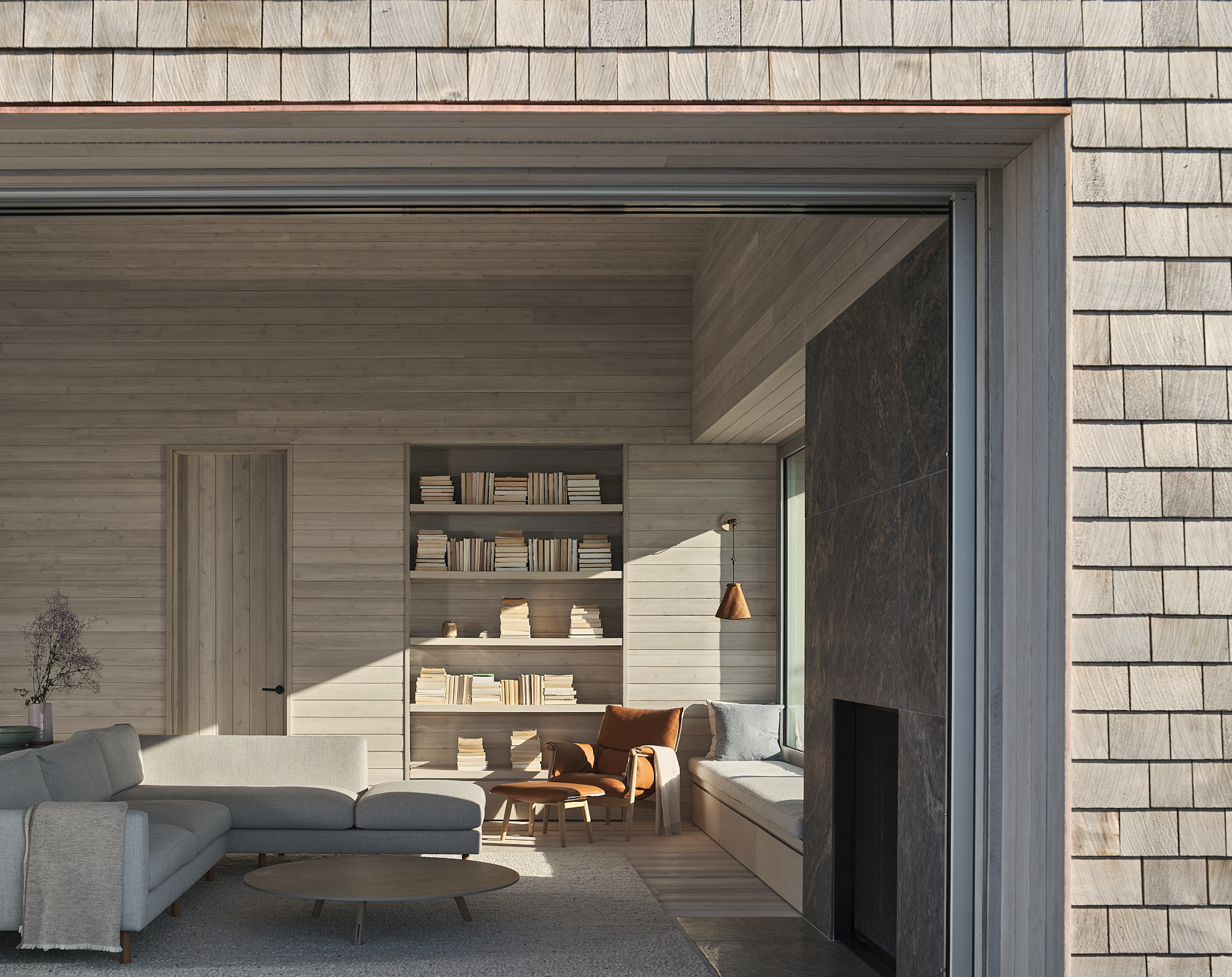
The architects aimed for their work to sit lightly on the land, sourcing local materials and, as much as possible, having everything prefabricated or handcrafted (the latter often by necessity as bringing large construction equipment over from the mainland was tricky, particularly as the lake freezes over in winter). More sustainable additions include smart water management, no mechanical heating or cooling, and ‘greenifying’ parts of the site.
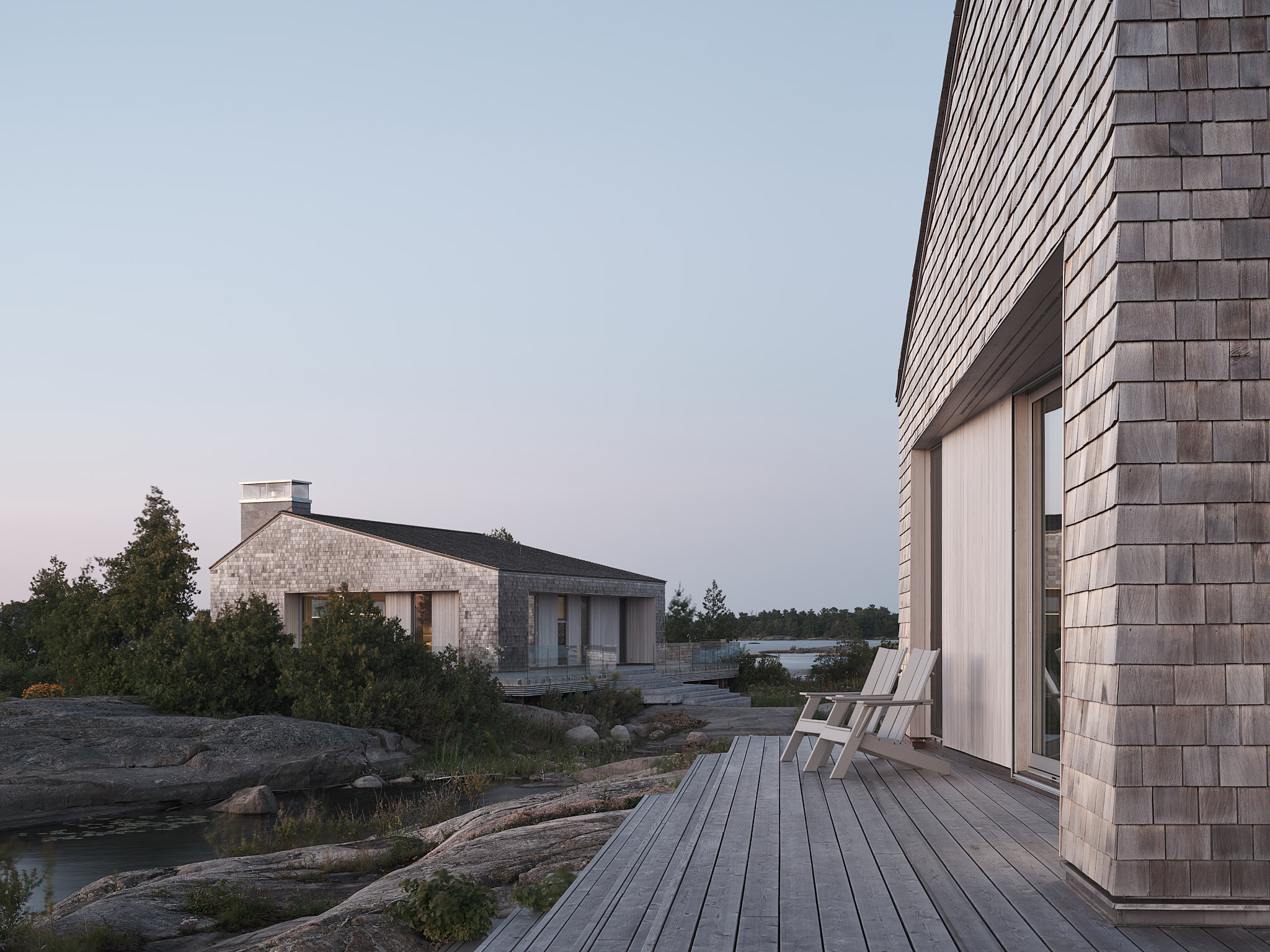
The result is a house that allows its users to feel like they are living within nature, their urban daily life a distant memory. Visible shoals beneath the lake surface, set against craggy outcrops, create an attractive holiday backdrop for leisurely pursuits, be they sport, relaxation, or entertaining friends and family. ‘It’s the kind of place that humbles you, reminding you of the power of nature,’ says Buffey.
